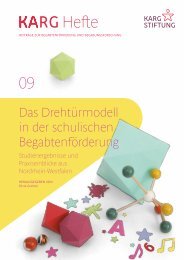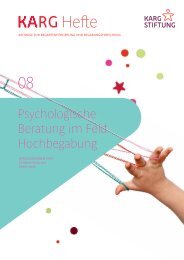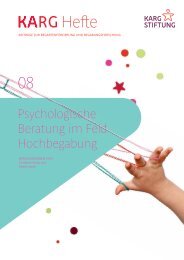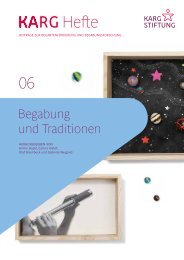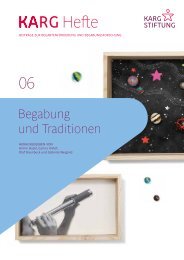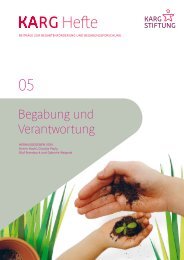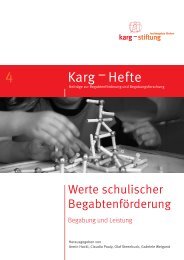FAQS: Frequently asked questions about giftedness
The Karg Foundation receives a lot of questions on the subject of giftedness—FAQs (Frequently Asked Questions)—far more often indeed than it did ten years ago. And this is a good thing! Many people involved in the educational processes of children have come to realize that giftedness can also be a fundamental personality trait of children and adolescents. The Karg Foundation wants to answer the questions you may have not only as educational and psychological professionals in educational institutions or working as educational providers, policy makers, or in training and further education institutes, but as parents and gifted people also: What is giftedness? How can it be identified? Who can provide advise for gifted children and their families? How can they be supported in the best possible way?
The Karg Foundation receives a lot of questions on the subject of giftedness—FAQs (Frequently Asked Questions)—far more often indeed than it did ten years ago. And this is a good thing! Many people involved in the educational processes of children have come to realize that giftedness can also be a fundamental personality trait of children and adolescents.
The Karg Foundation wants to answer the questions you may have not only as educational and psychological professionals in educational institutions or working as educational providers, policy makers, or in training and further education institutes, but as parents and gifted people also: What is giftedness? How can it be identified? Who can provide advise for gifted children and their families? How can they be supported in the best possible way?
Create successful ePaper yourself
Turn your PDF publications into a flip-book with our unique Google optimized e-Paper software.
What does support actually<br />
mean?<br />
Providing support means both challenging and appropriately<br />
guiding a child as he or she develops his or her<br />
skills and interests. Therefore, providing effective support<br />
is always personalized and will look different for different<br />
children—the decisive factor is that it fits the individual<br />
needs and possibilities of the specific child.<br />
The promotion of <strong>giftedness</strong> is a long-term process<br />
that can extend throughout the child’s development and<br />
into adulthood; it must be continually adapted to the<br />
stage of development and to new needs, environmental<br />
conditions, and evolving abilities. Ideally, this results in a<br />
continuous support system of appropriate activities and<br />
incentives.<br />
Supporting gifted children should not be limited to<br />
specific skills in which they show special talents (e.g.,<br />
mathematics or music), but rather should focus on the<br />
developmental needs of the whole person. What does the<br />
child need to effectively develop his or her talents? This<br />
may include, for example, the ability to motivate oneself<br />
and to persevere during difficult times, the ability to regulate<br />
one’s own emotions, and the ability to find likeminded<br />
people and make friends. A helpful approach is<br />
for teachers and parents to be attentive, challenging conversational<br />
partners who show authentic interest in the<br />
child, take the child’s perspectives seriously as well as<br />
expand them in a sensitive manner to foster the child’s<br />
enjoyment of intellectual challenges.<br />
In other words, the best support is that which is<br />
tailored to the individual’s talents, abilities, and learning<br />
needs, is flexibly adjusted over time, and is designed to be<br />
both long-term and comprehensive.<br />
68 69







